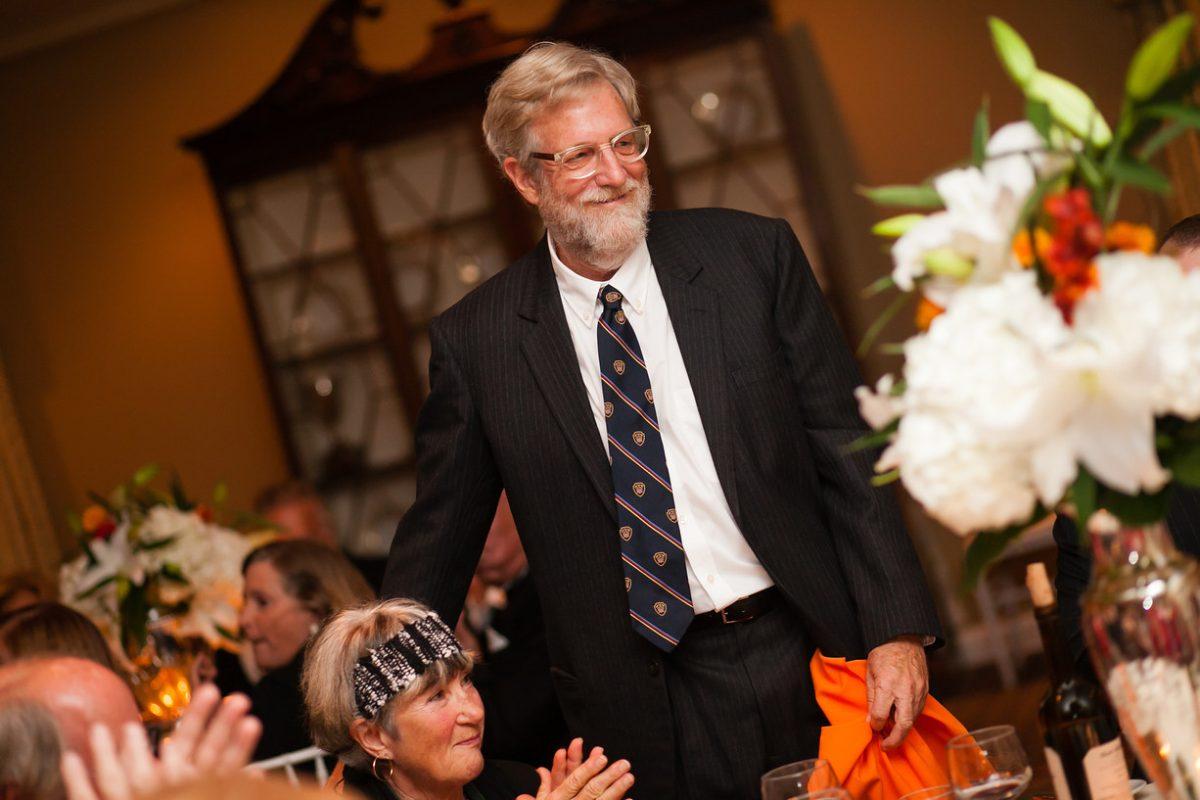There are certain people in the world that can completely change one’s understanding of it. For many students, faculty and alumni, Erv Peterson was exactly that person. Peterson has been teaching environmental studies at Sonoma State University since 1990 and involved with the school since 1987.
Friends, students and coworkers gathered in the Environmental Technology Center for an intimate farewell party on Friday. The location next to the school gardens, where students actively tended plants, couldn’t have been more appropriate for a man who dedicated most of his working life toward educating others about the environment.
About halfway through the event, everyone came together in a circle to share some of their favorite thoughts and experiences about Peterson.
Rocky Rohwedder, a professor in the environmental studies department, has known Peterson for 35 years.
“Erv is one of the kindest people I know. He’s incredibly humble and strong and I’ve never seen him raise his voice once in anger,” said Rohwedder. “Working with him on the Urban Environmental Program in Los Angeles in the late 1970s taught me how to be a better educator. His teaching techniques and demeanor are incredible.”
Peterson is a native to Sonoma County, being born and raised in Petaluma on an egg farm. He attended the University of Michigan where he first met Rohwedder.
Later, the two ran an Urban Environmental Program in Los Angeles where they shut down the freeway for the first time to hole a 5K run to save trees. As the years went on, both eventually found themselves working together again at Sonoma State.
Peterson practices sustainable living in all facets of his life. This extends all the way to his own home which he designed and built himself. The walls are constructed from recycled rice stalks and clay. They are made very thick to keep in heat during the winter and cold air during the summer. Even the orientation of the house and placement of windows is designed to capture as much natural sunlight as possible during cooler months. In addition, Peterson has his own well, solar panels, chickens and a renovated old chicken coup that’s now an art studio/in laws unit.
In his personal life, Peterson is a croquet player who has been adopted into the national croquet hall of fame.
When asked what prompted him to go into teaching environmental science, Peterson recounted going on a family trip to glacier national park with his family around age 9. It was there he said a park ranger started talking about how different altitudes can affect what and how trees grow in a particular area. Years later he spent five years in Tulare county working at SCICON School of Science and Conservation. These two experiences were prominent in his forming an interest and passion for the environment and sustainable living.
“When I started gardening Erv was really supportive of me,” said Tomio Endo, a previous student of Peterson’s and anthropology major. “Gardening and eating were sort of my way of coping with all the crazy problems you learn about in an environmental science class, and Erv is always supportive of anything that helps make a difference.”
A common experience throughout all those attending Peterson’s farewell party was that he is a person who has truly changed people’s lives.
In the experience of many of the other Sonoma State educators present was that time and time again countless students have commented on how Peterson was the person who changes their life direction and broadened their horizons.
Many believe Peterson really does walk the walk and talk the talk about what it means to be a good citizen of the planet, and that his personality and positive demeanor is contagious.
John Isom, an environmental professor who is filling in many of the classes left behind by Peterson’s departure, said, “The first day I walked into class this semester I asked everyone who was taking this class, because of or related to what they heard about Erv Peterson to raise their handg. All but two hands in the lecture hall of almost 200 immediately went up.”
Peterson said there is a greater sense of urgency than ever before in the department of environmental studies. This is due to a more acute and serious understanding about the health of the planet’s ecosystems, that is they are undoubtedly in rapid decline across the board.
In his response to this reality, Peterson said, “You’re not responsible for these problems, and you’re not going to fix them. But you can do your part in the solution.”
In his farewell message, Peterson said, “Students need to realize they can do whatever they’re good at and like doing. You don’t want to end up at a boring desk job, you need a sense of purpose in your working profession, we all deserve that.”



































